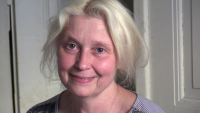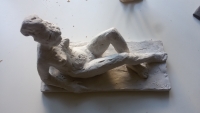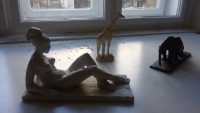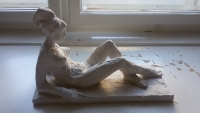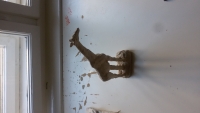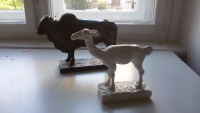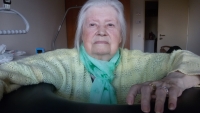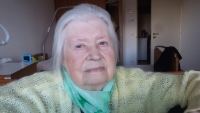Nothing was done “normally” in the totalitarian times, even the simplest things were extremely complicated
Ivana Nacherová, née Lošáková, was born June 25, 1961 into an artistic family of Marie Leontovyčová and Ivan Lošák. She has a sister who is two years older than her. Her mother’s side of the family comes from Western Ukraine where her ancestors had been given a title of nobility. They had worked as Greek Orthodox clergymen, high church officials and revivalists of Western Ukraine. Grandfather Ivan Leontovyč (1893-1970) studied theology in Lviv and philosophy in Prague and was a stenographer for prezidents Tomáš Garrigue Masaryk and Edvard Beneš. He was imprisoned by Communists between the years 1948 and 1953; he was rehabilitated after the Velvet Revolution in 1989. Ivana’s father Ivan Lošák came from Zakarpattia and came to Prague during World War II. Ivana’s parents graduated from both Ukrainian and Czech Academy of Arts. Her mother focused on sculptures and the restoration of sculptures; her father was a painter. He refused to join the Communist Party for which he was fired from the Academy of Arts; he found a new job in Příbram. Ivana studied at a higher vocational school of arts between 1974 and 1980, majoring in textile arts and restoration. In 1983 her husband emigrated after he hadn’t returned from a trip to visit his grandmother in Monaco. In the meantime, Ivana gave birth to a handicapped daughter who required special care. Ivana was subjected to State Security interrogations because of her husband’s emigration. In 1987, on the third try, she was accepted to the Academy of Fine Arts but did not commence her studies – another student was given preference on the request of the then minister of culture. When her kids were small, she devoted herself to painting and textile work, then she worked as a metal conservator in the Central Bohemian Museum in Roztoky u Prahy. In 2018 she organized an exhibition called Seen by Hands for her mother in Roztoky. After Ivan Lošák’s death (in 1990), his wife donated most of his work to a museum in Uzhgorod, Ukraine.
